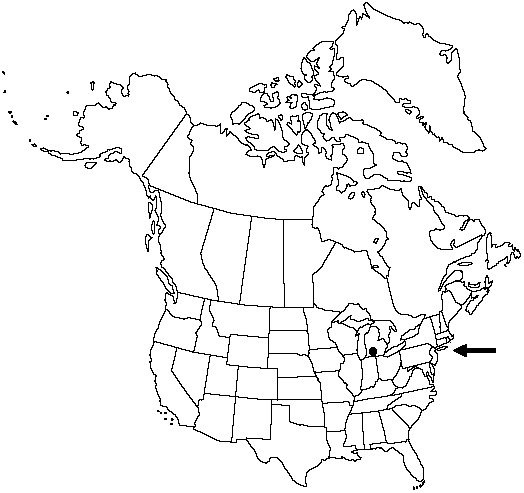Lycopodiella margueriteae
W. H. Wagner, & Beitel, Michigan Bot. 30: 9. 1991.
Horizontal stems flat on ground, 10–18 × 1–1.6 cm, stems (excluding leaves) thick, 1.8–2.2 mm diam.; leaves monomorphic, spreading, and nearly perpendicular to stem, 6–13 × 0.8–1.2 mm; marginal teeth 3–4 per side, mainly on proximal 1/2. Upright shoots 1(–2) per plant, 13–17 × 0.3–0.7 cm; strobilus 1/2–1/3 total length; leaves initially divergent, then incurved, almost appressed, 5–6 × 0.4–0.8 mm, marginal teeth 0–2 per side. Strobili 5–8 × 0.4–0.9 cm. Sporophylls appressed, incurved, 4–6 × 0.4–0.5 mm, marginal teeth absent. 2n = 312.
Habitat: Wet, acidic ditches and borrow pits.
Distribution

Of conservation concern, Mich.
Discussion
Lycopodiella margueriteae forms apparently fertile hybrids with the other tetraploid species, L. subappressa. Its hybrids with the diploid L. inundata are sterile, however. Lycopodiella margueriteae can be distinguished from L. appressa and L. subappressa by the rather thick and large strobili, 1/3–1/2 the total length of upright shoots, and the more spreading leaves of the strobili and upright shoots.
Selected References
None.